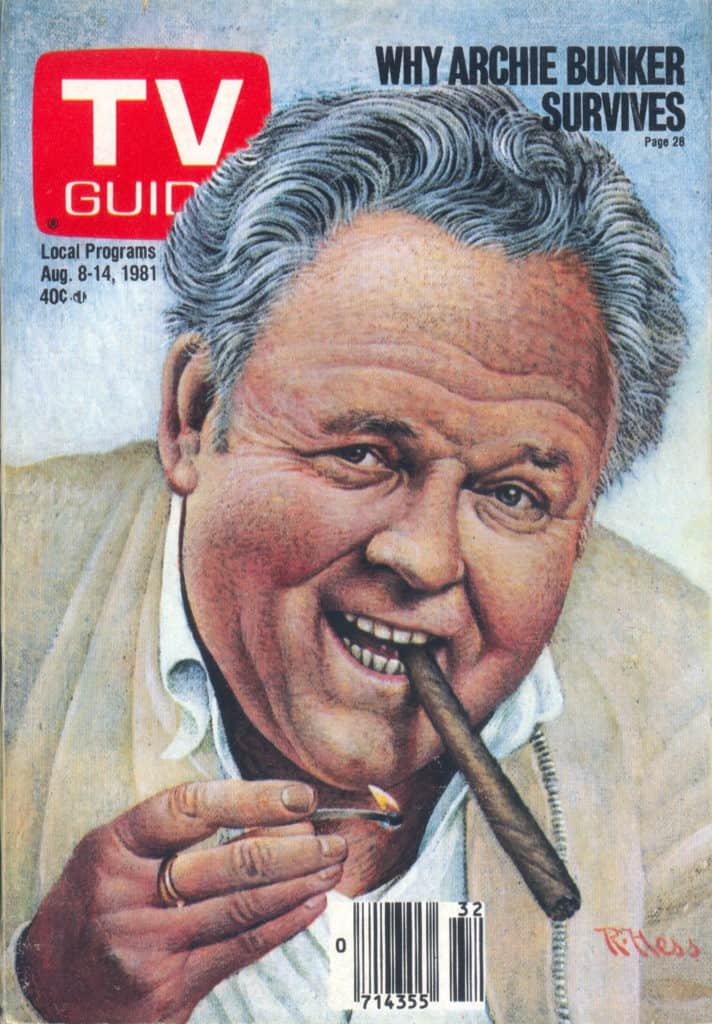

By John Gallo
Hastings on Hudson
I want to begin at 704 Hauser St., in Astoria, Queens, not far from the homes and apartments of many of Alexandria Ocasio Cortez’s new constituents. I suspect that many readers younger than 40 have no idea what I am referencing; perhaps a few are Googling “704 Hauser St.” in their phones. And to their dismay, they now know this is the television address for Archie and Edith Bunker, who in the 1970s lit up televisions in America from their living room in Astoria.
Many younger than 40 have never seen one episode of “All in the Family” and know it only as a relic from a bygone era of American culture filled with racist dialogue that should never see the light of day. Those same critics are certain that Archie Bunker is a metaphor for everything that remains wrong with America. He is the stereotypical white male, blessed with untoward white male privilege, infused with bigotry, and a threat to every progressive value in the country.
They know more about Ms. Cortez’s latest tweets than they know about Archie Bunker (and that’s fine, given their age), and they know everything about the blessings of progressive thought and socialism.
But I want to move 4,253 miles away from Hauser Street (thank you, again, Google) to the City of Bratislava. Being myself a recipient of some measure of white privilege (two of my grandparents came to this country from Puerto Rico, but why destroy the narrative), I had the good fortune of visiting Bratislava in 1985 with a classmate from graduate school. At the time, Bratislava was the second largest city in Czechoslovakia, and was still under Soviet control – enjoying the fruits of socialism.
And it was on that trip, thanks to one woman, that I understood for the first time how lucky I was to be an American. I had heard that cliché before, either from people I saw on television or from teachers or other adults, but in hindsight, I never knew what that phrase meant. I was fortunate to be born into a middle-class family, sufficiently nerdy to go to good schools, wanted for little, and took far too much for granted.
I was not rich, but I did not know financial hardship, always knew where my next meal was coming from, and looked with innocence into the future.
Back to Bratislava… It was a Sunday afternoon in October, and the weather was pleasant if not perfect. The Iron Curtain was still in place and Czechoslovakia fell under its shadow. My friend and I traveled by hydrofoil from Vienna to Bratislava, and my first memory of that day – while getting off the hydrofoil – was seeing a 19-year-old soldier on the dock welcoming us while displaying a Kalishnikov. Not exactly the warmest of welcomes, but I knew that I was not the reason he stood at the dock fully loaded.
We then took a short bus tour around Bratislava (in 1985, any tourist was required to pay homage to statutes commemorating Soviet era historic figures). Due mostly to my own naïveté, I was taken aback by the sight of too many buildings with too many artillery or bullet holes to ignore – whether the holes were from World War II or 1968 is almost beside the point. For a liberal arts major in college who came from a prep school in Brooklyn, it was enlightening, to say the least.
But then we walked through town with our guide, and I remember looking up at a row of otherwise normal looking buildings and seeing a woman in her second-floor apartment staring out onto the street. And what still remains with me to this day is the absolute blankness of her stare. She was eating some porridge-like food, putting it into her mouth with no facial expression, and staring down to the street below. There was no sense of “life” in her expression – no hope, no hint of emotion, no expectation of what might happen to her later that afternoon or the next day.
This was the end product of socialism in its most pure and basic form, and it was at that moment that I understood what adults had told me while growing up: that you don’t know how lucky you are to be an American.
I had never before seen an adult whose life had been drained from her. Maybe there were other forces at work. All I know is that I never saw this face in America. I’m not talking about poverty or joblessness, nor am I talking about loneliness or depression. I’m talking about something different; I’m talking about emptiness, an emotional void in a person’s soul left by decades of repression by a government that won’t let you get on a boat a few blocks from your house, subsumed by an economic structure that deprives you of the most basic tenet of humanity – the right to be free and fulfill your potential.
Back to Hauser Street. Archie was not perfect. None of us are. He had faults, and certainly would not recognize America in 2019. Keep in mind that Norman Lear wrote “All in the Family” not to promote racism, but to force us to acknowledge our own prejudices. In so doing, Mr. Lear, a sincere liberal, did more to help this country examine its own biases than any mandatory social justice course in this country.
Mr. Lear used Archie as his oracle for both good and bad. But for all his faults, Archie understood the meaning of a 19-year-old Czech soldier carrying a Kalashnikov, and he could comprehend the empty stare of a woman whose joy of life was stolen from her by her government. Archie knew nothing about cisgender patriarchy, but understood that socialism had killed more than 20 million people in defense of a corrupt ideology. He failed miserably at debating abstract theory, but understood the cold truth behind hard facts.
So when Ms. Cortez and her acolytes condemn this nation’s past in an effort to bring our country the blessings of socialism, I would urge them to think about the woman I saw in Bratislava. Think about the bullet holes in buildings and the young soldier with a rifle guarding a dock. And, if possible, for once please acknowledge that the people who formed this country with nothing but their hearts and minds created the strongest, wealthiest, and most free country in the history of the planet.
Or, as Milton Friedman once noted, capitalism – for whatever its faults – has created more jobs, created more wealth, saved more people from tyranny and fed more mouths that any economic system in the history of the world. There is no socialist parallel.
And while we should always strive to create a “more perfect union,” trying to restructure the economic foundations of this nation in exchange for a government-led utopia that has never existed will cause more damage to this country than anything that ever happened on Hauser Street.





